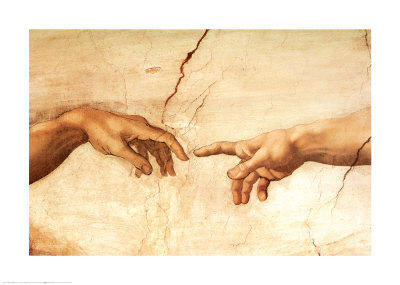 Forgiveness is one heck of a concept.
Somebody does something against you that is wrong, and you make the choice not to hold it against them.
Forgiveness is one heck of a concept.
Somebody does something against you that is wrong, and you make the choice not to hold it against them.
Peter has this on his mind when he approaches Jesus in Matthew 18:21 and says “Lord, how often should I forgive someone who sins against me? Seven times?”
Have I mentioned how much I love Peter?
He’s basically saying ‘I hate to forgive, but I’ll do it the minimum number of times I’m required to do it to keep you happy, Jesus’.
You can just imagine if you did something wrong to Peter, he’d say ‘I forgive you’, then he would pull out a sheet of paper with your name on it and put a big, red “X” in one of the seven boxes under your name. Then he’d look you in the eye with a rock hard stare.
Jesus’ response is ‘seventy times seven’. Now, Jesus isn’t saying 490 times is the limit. He’s using a figure of speech that is equivalent to us saying ‘infinity plus one!’ In other words: don’t stop forgiving.
Now here’s a big question that people have: do I have to forgive somebody who hasn’t apologized/repented?
If you were abused as a kid / had a car stolen and you never found the thief / been lied to by a salesperson that you couldn’t contact, should you forgive them? Or even somebody you know and see all the time - what if they don’t ask for your forgiveness?
I had a professor who was adamant that, biblically speaking, we are under no obligation to offer forgiveness unless we have been asked for it. We are free to offer it, much like Jesus did, but don’t have to.
For a long time I agreed with him. I was willing to forgive instantly if asked to do so, but if you didn’t ask for forgiveness, I didn’t extend it. I felt it would be like casting pearls before swine.
But I’ve realized something lately. Failing to forgive can be harmful to you. Until you let go of your offense, I’m not sure God can heal the wound it caused.
It’s like being stabbed with a knife, then saying ‘I won’t pull this knife out unless you ask me to.’ That’s dumb. Pull it out and let the healing process start.
The important thing about forgiveness is this: until forgiveness is sought, none can be received.
If you forgive somebody who hasn’t asked for it, they won’t accept it. But that doesn’t change the fact that you are beginning to heal. It’s not like you’ve let them off the hook and they’ll just take advantage of your forgiveness to make themselves feel better.
If somebody doesn’t think they need forgiveness, they won’t take it.
Think about Jesus. He offers forgiveness at the cross (Luke 23:34). Is everybody immediately off the hook? No. Not until they repent. Look at Peters’ speech at Pentecost. Telling the people in Jerusalem that they killed the Messiah. And what happens? Their hearts are pierced (Acts 2:37) and they ask what they can do. Peter tells them to repent and turn to God. Why? Because forgiveness has been offered. All they have to do is accept it.
Now listen, the important thing about offering forgiveness is to learn whether it has been accepted before restoring that person to the place where they previously were. If you gave somebody your credit card and they ran it up without your permission, you need to make sure they have really repented before you think about giving it to them. One good test is that if they truly have repented, they’ll start working to pay you back.
If your husband/boyfriend beats you or your kid(s), saying ‘I’m sorry’ isn’t good enough to let him back in your house.
There will be proof to go along with genuine repentance. The Bible calls this ‘fruit in keeping with repentance.’ (Matthew 3:8) In other words, prove by the way you live that you really have changed.
I tell my daughter all the time to show me she’s sorry with her actions, not just her words. If she says she’s sorry for not listening, but then doesn’t listen to me again 5 minutes later, I have to doubt the sincerity of her apology in the first place. (Now, she’s a child, so she’s learning. I don’t hammer her over this…usually. It’s a gentle teaching process.)
Some may say that this is essentially saying ‘forgive, but don’t forget’. I don’t see it that way. I see it as ‘forgive immediately, restore slowly’.
Forgiving isn’t easy. I’d say it’s one of the hardest things we do in life. Maybe that’s why Jesus made it a little easier by putting a line about it in The Lord’s Prayer: “…and forgive us our sins, as we have forgiven those who sin against us…” (Matthew 6:12)
Jesus is saying here, ‘even if you don’t want to forgive somebody, do it for yourself’. Unforgiveness in your life will affect you much more than it will affect the person who you’re holding it against.
And in the end, it will make you unforgivable, too.
 You know, it’s funny.
When Jesus called Peter and Andrew to be his disciples he didn’t say “Come follow me, and it’ll be a cake walk.” (see Matthew 4:19)
You know, it’s funny.
When Jesus called Peter and Andrew to be his disciples he didn’t say “Come follow me, and it’ll be a cake walk.” (see Matthew 4:19)












 I think God works more like a crock pot than a microwave.
I think God works more like a crock pot than a microwave.